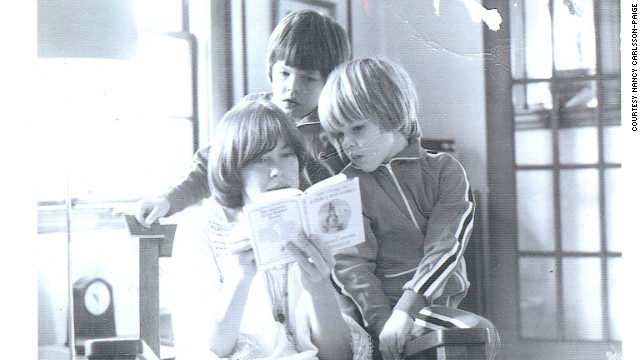Police: Bieber positive for pot, Xanax
1/30/2014 8:20:27 PM
STORY HIGHLIGHTS
- Justin Bieber was "excited," "insulting," "cocky" and "used profanity," police say
- "Yeah, we were smoking all night at the studio," Bieber told police, report says
- Bieber charged in Toronto, allegedly struck a limo driver on the back of the head
- An L.A. prosecutor is expected to decide soon whether he'll be charged in egging
(CNN) -- Justin Bieber was under the influence of alcohol, pot and Xanax when police stopped him for drag racing in Miami Beach last week, police documents allege.
"Yeah, we were smoking all night at the studio," the singer told a police officer who told him he "reeked of marijuana," according to documents released Thursday.
Bieber was "excited," "talkative," "insulting" and "cocky" and "used profanity," according to a intoxication evaluation conducted by police in the Florida city.
His speech was mumbled, his pupils dilated, his face flushed and his eyes bloodshot, the assessment said.
The lab test results and details of Bieber's sobriety tests were released just hours after the 19-year-old singer was booked on an assault charge in Canada, accused of hitting his limousine driver in Toronto a month ago.
Bieber, who will turn 20 in four weeks, apparently sought refuge Wednesday night in Stratford, the Canadian town where he grew up before becoming a pop star.
His father tweeted a photo of Bieber asleep in a bed with Justin's younger half brother, Jaxon. The Twitter message posted by @JeremyBieber read: "Safe and sound #homesweethome"
Earlier Wednesday, Bieber's lawyer entered a "not guilty" plea to the Florida charges of DUI, resisting arrest and driving with an expired license, according to court records.
The prospect of a third criminal arrest for Bieber hangs on a decision expected as soon as next week, after detectives investigating an alleged egg attack on his California neighbor meet again with a Los Angeles prosecutor.
Bieber told police in Miami Beach that he had taken "medications for anxiety" that night but that he did not know what it was or whether he had a prescription for it. "Well, my mom takes care of all that stuff for me," the police report quoted him as saying.
The preliminary toxicology report on Bieber's urine sample said it tested positive for "metabolite of THC," which indicates marijuana use, and alprazolam, the generic name for the prescription sedative Xanax.
At the police station, Bieber failed a series of sobriety tests, including "horizontal gaze," "Romberg balance," "walk and turn," "finger to nose" and "one-leg stand" tests, the police report said.
When Bieber was asked to estimate when 30 seconds passed, he failed by thinking a half-minute was over in 17 seconds, the report said.
He had "great difficulty" completing the Breathalyzer test, the officer wrote. He "continuously forgot basic instructions."
Bieber told the officer "that he was blowing as hard as he could, and told me to look at how red his face was," he wrote. "He advised he was blowing into the hose like he blows into his trumpet."
When he was finally successful, he blew .011 and .014 in two Breathalyzer tests, the report said. Florida's legal limit for drivers under the drinking age of 21 is .02.
Bieber was briefly jailed in Miami Beach on January 23 after he was stopped by a police officer who said he was drag racing in a Lambourghini on a residential street.
Opinion: Money and Justin Bieber's teenage brain
Toronto assault charge
Bieber arrived at a Toronto police station for booking Wednesday evening amid a chaotic scene as determined photographers, reporters, screaming fans and the curious converged around his SUV. About a dozen Toronto police officers shoved their way through the crowd to escort Bieber, getting him through the door only after a struggle.
The alleged incident happened after the limo driver picked up a group of six people outside a Toronto nightclub just before 3 a.m. December 30, according to a police statement.
"While driving the group to a hotel, an altercation occurred between one of the passengers and the driver of the limousine," the police statement said. "In the course of the altercation, a man struck the limousine driver on the back of the head several times. The driver stopped the limousine, exited the vehicle and called police."
The singer attended a Toronto Maple Leafs hockey game at the Air Canada Centre earlier in the evening, according to the CBC.
Bieber left the Toronto police station through a rear exit after about two hours inside Wednesday night. He is set to appear in a Toronto court on March 10, police said.
Bieber's Los Angeles lawyer said the charge was "the equivalent of a misdemeanor in the United States."
"Our position is that Mr. Bieber is innocent," attorney Howard Wietzman said. "As the matter is now before the court, it would be inappropriate to address the specifics of either the allegation or of our defense at this time."
Bieber's manager, Scooter Braun, posted messages on Twitter that appear to be related to Wednesday's arrest:
"for all those asking @JeremyBieber and @pattiemallette love their son. Stop passing judgement on a situation u dont understand. i ask people to be kind and hope for the best in people. not assume the worst. thanks"
Bieber's latest criminal arrest came just an hour after the television debut of his newest video, for his song "Confident."
Bieber's bad behavior: We've seen it before
Egging investigation 'tightening up'
Detectives are "tightening up" their case against Bieber in his alleged egg attack on a neighbor's residence, an investigator said Tuesday.
The neighbor accused Bieber of tossing eggs over a fence and onto the mansion next door on January 9, causing an estimated $20,000 in damage.
A dozen Los Angeles County Sheriff's deputies raided Bieber's $6.5 million home in the exclusive Oaks community in Calabasas, California, two weeks ago, taking the security video system as evidence.
A prosecutor reviewed the security video Monday and asked detectives to do more investigation before a decision is made about charging the pop star with felony vandalism, according to Lt. David Thompson.
Detectives will probably meet again with prosecutors in the Los Angeles County District Attorney's office next week, Thompson said. The district attorney will then decide whether a charge will be filed against Bieber.
'Deport Justin Bieber' petition reaches 100,000+ signatures
CNN's Tory Dunnan, Carolyn Sung, Stephanie Gallman and Susan Candiotti contributed to this report.




